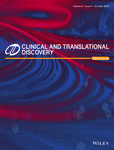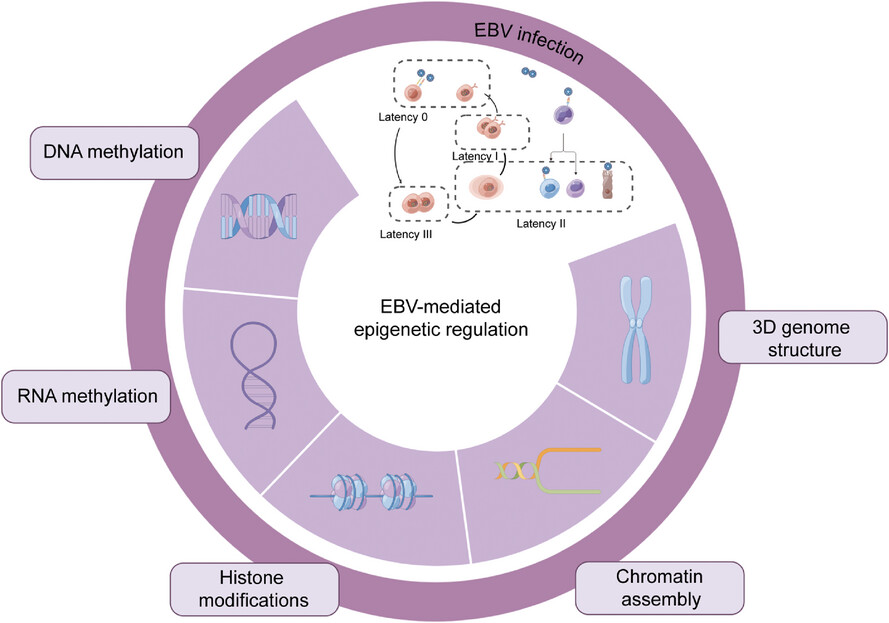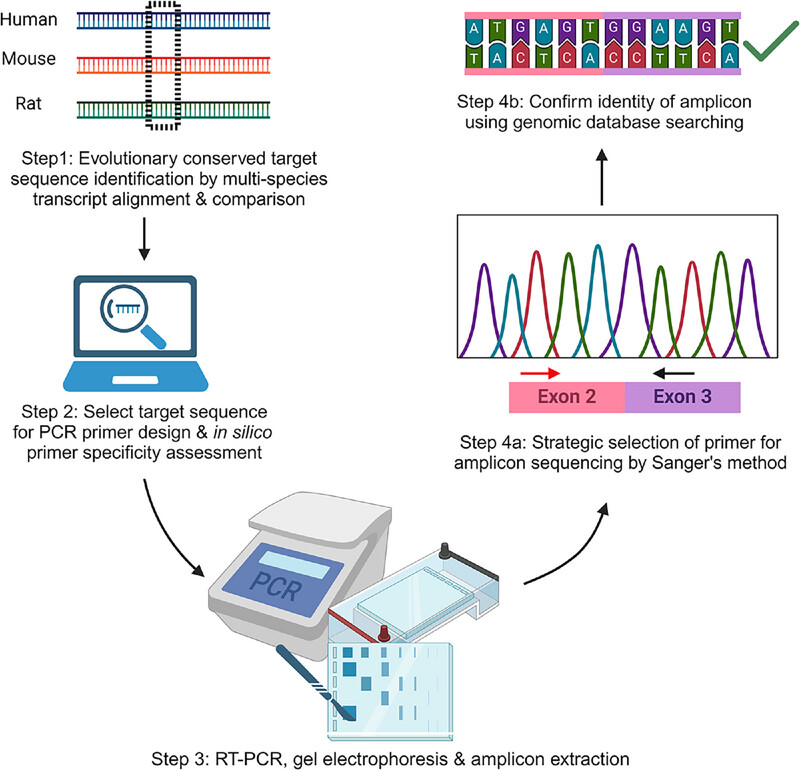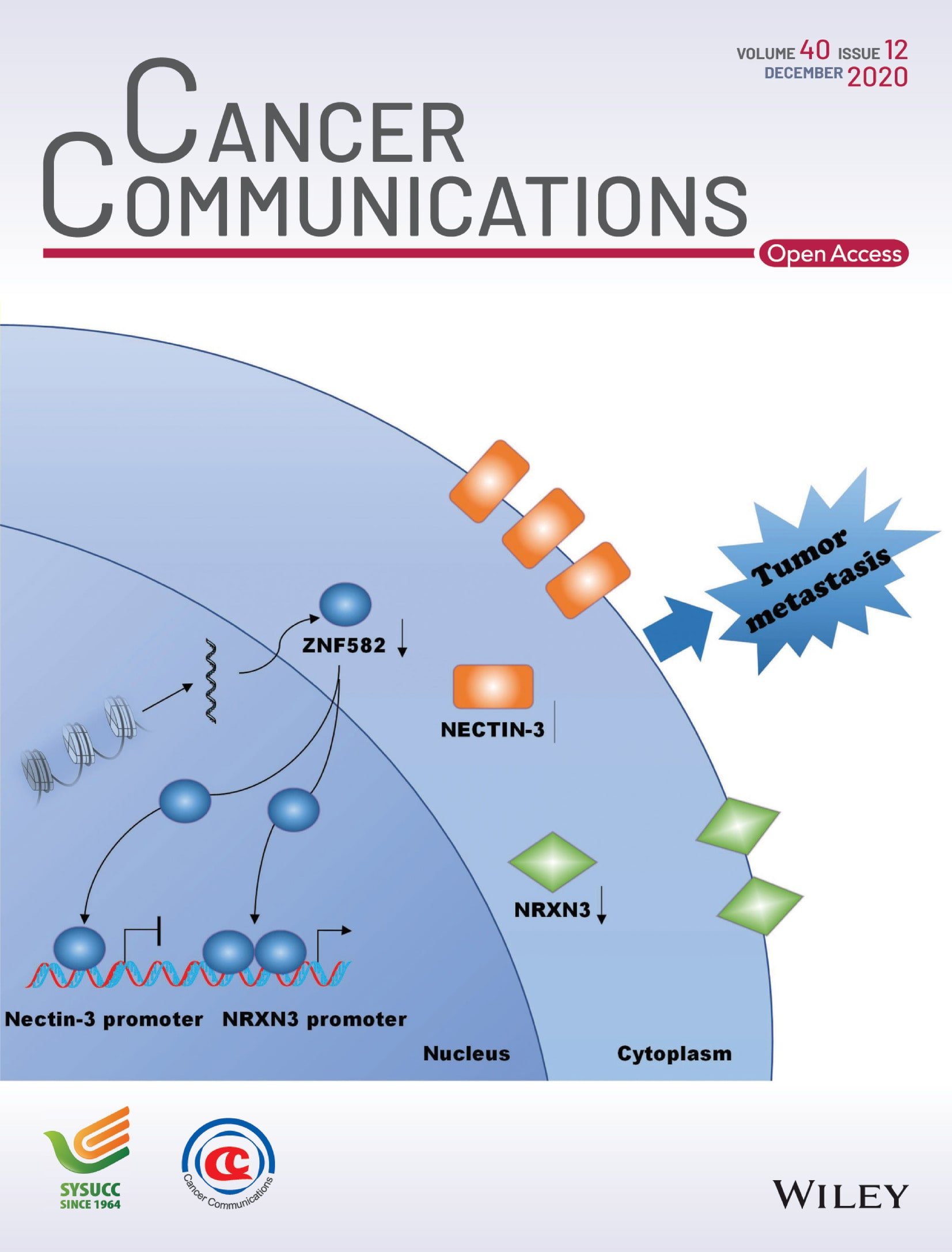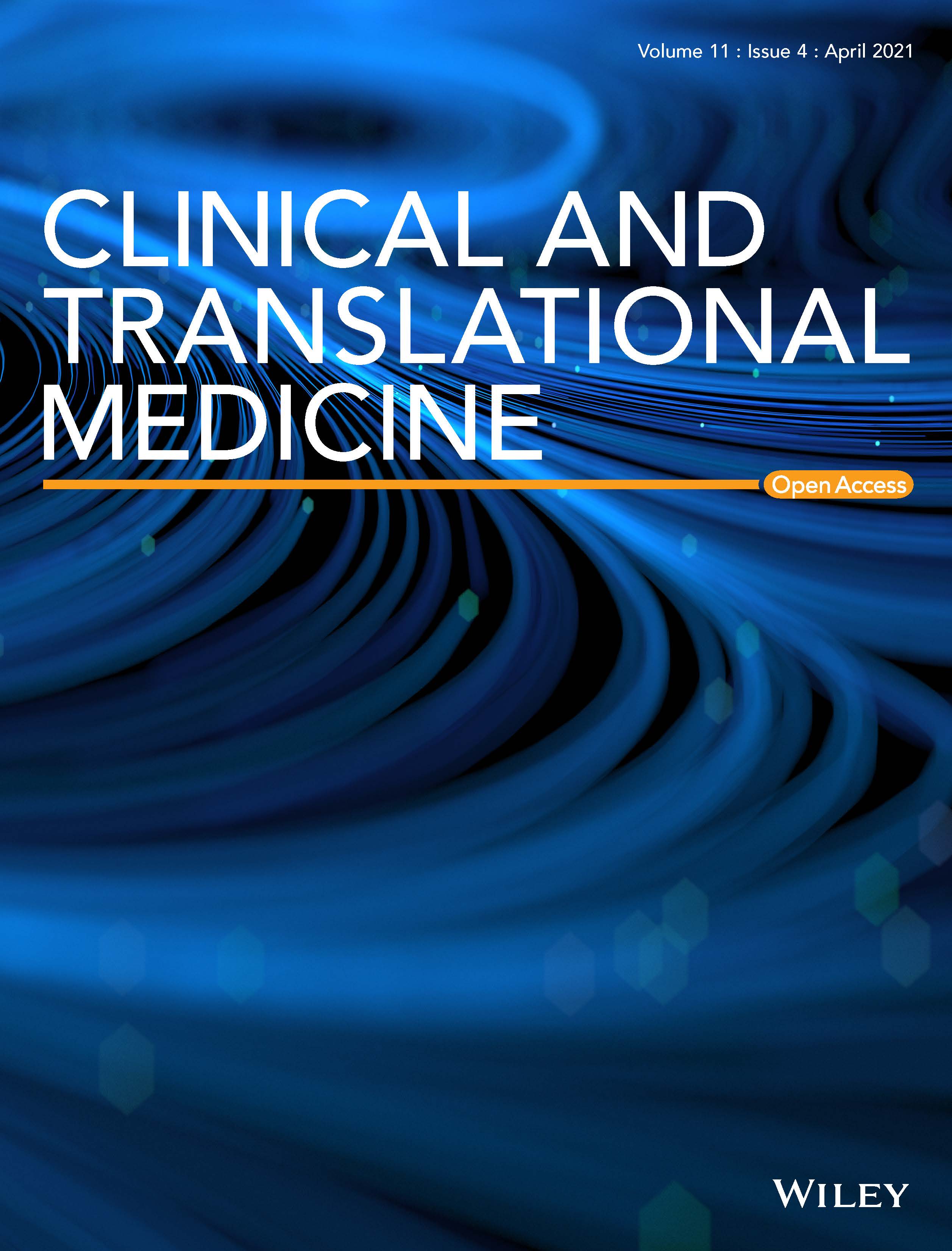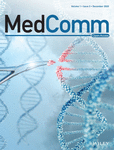Journal list menu
Export Citations
Download PDFs
ISSUE INFORMATION
LETTER TO THE JOURNAL
Single-cell RNA sequencing data identify a conserved population of metallothionein-expressing macrophages that may be ubiquitous in vital human organs
- First Published: 27 August 2024
REVIEW ARTICLE
Prediction factors and models for chronic kidney disease in type 2 diabetes mellitus: A review of the literature
- First Published: 05 September 2024
RESEARCH ARTICLE
Inflammatory-associated myeloid dendritic cells reveals associations between chronic lung diseases and lung cancer
- First Published: 03 October 2024
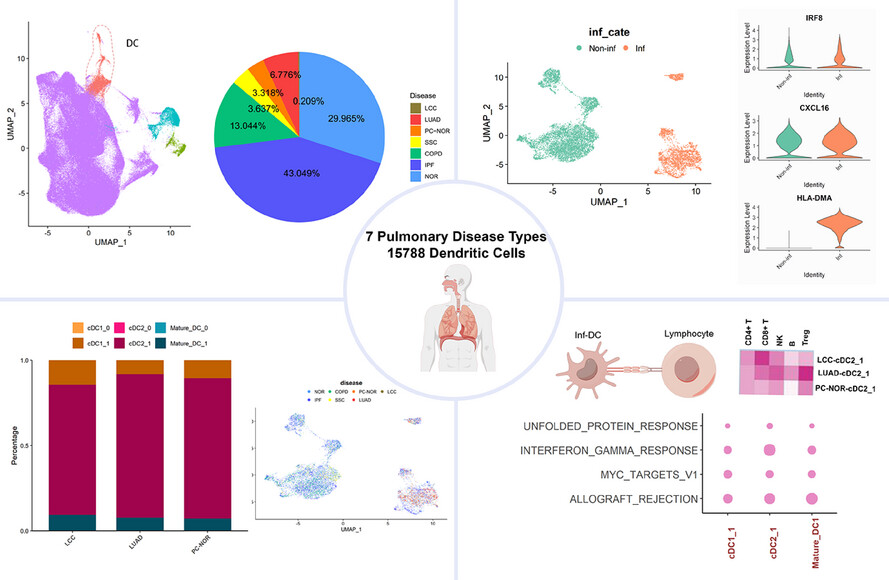
HEADLIGHTS:
1. DCs were divided into non-inf DCs and inf-DCs based on their expression features of IRF8 and pro-inflammatory cytokines and chemokines.
2. The percentages of inf-DC in patients from cancer were all 100%.
3. cDC2 interacted more actively with lymphocytes than cDC1 and mature-DC; inf-DC interacted more actively with lymphocytes than non-inf DC.
4. All the three inf-DC showed a general inflammation program.
REVIEW ARTICLE
Epigenetic regulation of Epstein–Barr virus: From bench to bedside
- First Published: 30 September 2024
Endothelial cell senescence contributes to pathological retinal angiogenesis
- First Published: 03 October 2024
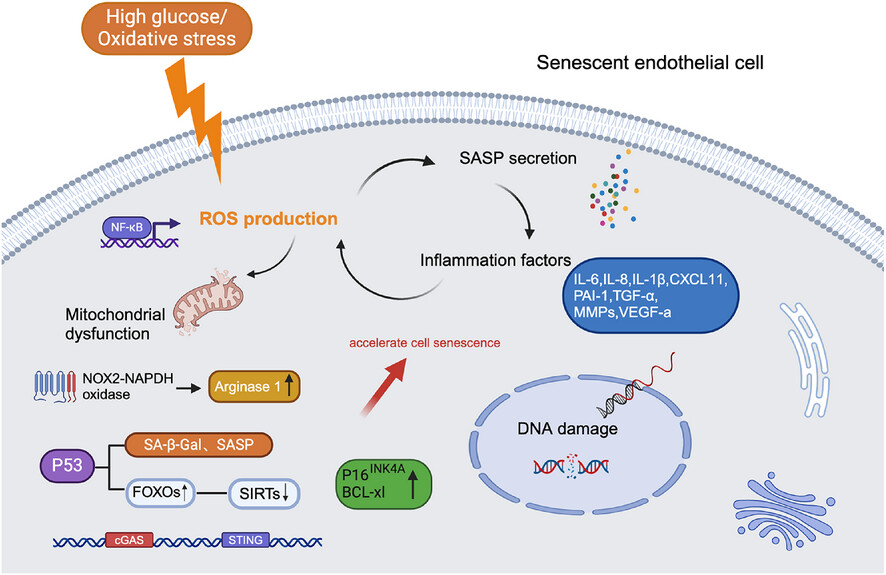
High glucose or oxidative stress promotes reactive oxygen species accumulation in retinal endothelial cells and induces cell senescence.
The senescent endothelial cells exhibited the secretion phenotype of senescence-related secretory phenotype and increased senescence-associated proteins.
Targeting forkhead family ‘O’ group/Sirtuins and cGAS/STING signalling pathways to inhibit endothelial cell senescence may be a new therapy for anti-angiogenesis.
SHORT COMMUNICATION
REVIEW ARTICLE
Liquid biopsy—A biomarker-based revolutionising technique in cancer therapy
- First Published: 10 October 2024
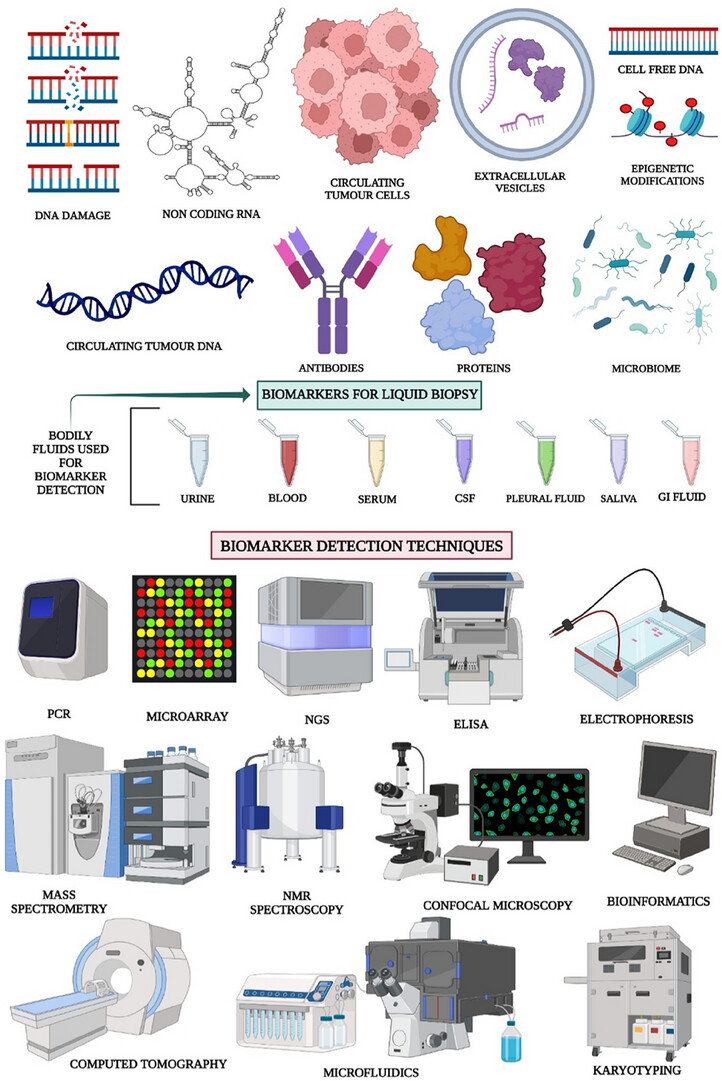
- Liquid biopsy analyses the levels of biomarkers, which are of clinical significance present in bodily fluids like blood, serum, urine and saliva for diagnosis of cancer.
- The different biomarkers evaluated by liquid biopsy include cell-free DNA, circulating tumour DNA, non-coding RNA, proteins, exosomes and circulating tumour cells.
- The biomarkers are analysed using different sophisticated techniques such as microarray, next-generation sequencing, microfluidics, karyotyping, advanced microscopy and fluorescence in situ hybridisation.
- The biomarkers provide valuable information regarding the stage of cancer and also enlightens medical professionals about the most suitable therapy.
COMMENTARY
Otubain 2 promotes muramyl dipeptide-mediated anti-colitogenic effects due to de-ubiquitination of receptor interaction protein 2
- First Published: 23 October 2024
EccDNA, STING activation, and their potential roles in DLBCL prognosis and therapy
- First Published: 23 October 2024
“Single-cell multimodal chromatin profiles revealing epigenetic regulations of cells in hepatocellular carcinoma”
- First Published: 18 October 2024
Integrating single-cell RNA sequencing data to decipher heterogeneity and function of macrophages in various organs and diseases
- First Published: 23 October 2024




